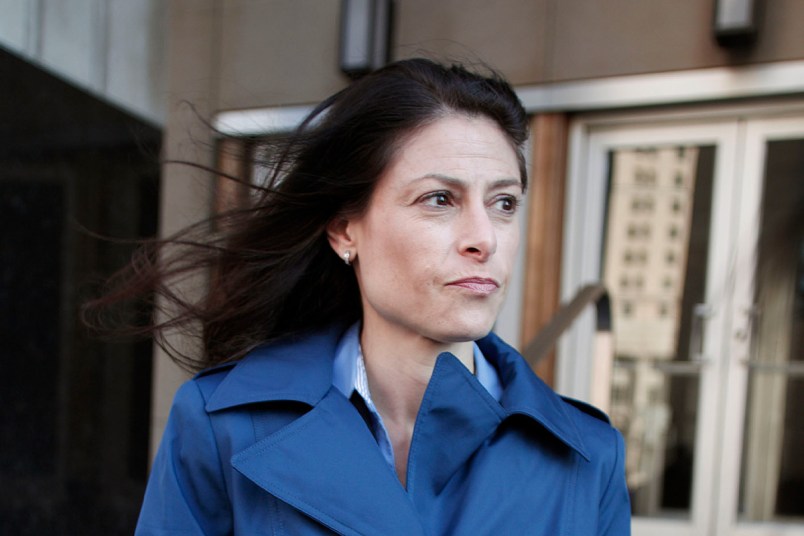Michigan Attorney General Dana Nessel on Tuesday brought felony charges against the 16 fake electors who were involved in Donald Trump’s effort to reverse his loss in the state following the 2020 election.
The 16 fake electors include then-Michigan GOP chairman Meshawn Maddock and Kathy Berden, an RNC committeewoman representing the state.
The Michigan electors were part of a national effort organized by the Trump campaign to try to reverse his loss by convening electors who, had he won, would have signed certificates attesting to the victory. In reality, Trump lost to Joe Biden; the Trump campaign had the electors sign certificates saying he had won anyway, as part of a harebrained attempt to provide Congress, the courts, or state legislatures with a means to award Trump the presidency via the Electoral College in spite of his loss.
In Michigan, unlike other states, the electors signed certificates saying they were “duly elected and qualified” to represent the state.
Nessel condemned the fake electors in a video as a “desperate effort” aimed at “interfer[ing] with and overturn[ing] our free and fair elections process,” and to award the state’s electoral votes to “the candidate of their choosing, instead of the candidate that Michigan voters actually chose.”
Per charging documents released by Nessel’s office, each of the fake electors face eight separate counts.
They include:
- One count of conspiracy to commit forgery
- Two counts of forgery
- One count of conspiracy to commit uttering and publishing
- One count of uttering and publishing
- One count of conspiracy to commit election law forgery
- Two counts of election law forgery
The charges came on the same day that Trump claimed he had received a target letter from the Department of Justice in Special Counsel Jack Smith’s investigation, which has also examined the role played by the fake electors.
The fake electors formed an integral part of Trump’s effort to reverse his 2020 loss.
Amid all of the post facto investigations that he marshaled around the country in search of proving mass electoral fraud that was never there, Trump relied on the fake electors to act as the means by which he could be re-elected while still having lost.
Vice President Mike Pence was, on January 6, to either use the fact of a supposed “dispute” in the electoral slates as a reason to decline to accept anyone as the valid winner, or to outright accept the fake electors as markers of a real Trump victory.
Nessel described that as “fraud,” and an “attempt to outmaneuver and circumvent the longstanding electoral process.”
She added that her office’s investigation remains ongoing, and that investigators have “not ruled out potential charges against additional defendants.”
Multiple attorneys for the Trump campaign helped convene the fake electors around the country, and worked to provide them with certificates depending on the state laws which governed how they were to cast their electoral ballots.
In Michigan, the fake electors cast their votes in the basement of the Michigan GOP’s headquarters. A group of the Michigan fake electors later tried and failed to enter the floor of the state Senate to deliver their ballots, a video of which can be seen here:
One of the attorneys involved in organizing the fake electors and devising the legal rationale for their existence, Kenneth Chesebro, defended his actions to TPM last year as “what lawyers do.”
Nessel said that her office believed there was “no legal authority” for the fake electors to cast their ballots as they did.
She added that she felt compelled by the circumstances to issue the charges.
“The most political action I could take as a prosecutor would be to take no action at all,” she said.
Read the charging documents here:



